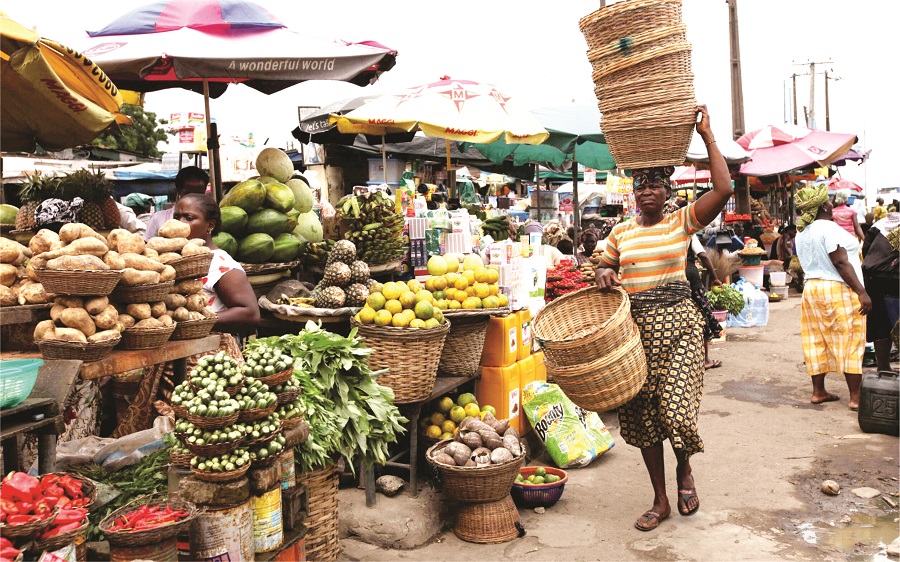Nigeria’s economy, having suffered two recessions in the span of five years, has continued to falter.
Although Nigeria is the biggest economy in Africa, its macroeconomic position has been waning over the years with rising prices of goods and commodities, a falling currency and Gross Domestic Product (GDP).
The biggest culprit for this has been the fall in the price of the crude oil which is the mainstay of the economy. Though the recent rise of the price of the commodity was also an albatross as the country had to pay through its nose to import fuel which is draining government coffers and also reducing the capacity of the Central Bank of Nigeria to defend the naira against the raging dollar.
‘Farmers’ displacement in Benue, Taraba contribute to rising food inflation in Nigeria’
Major events that shaped environment sector in 2022
Inflation never looked back
Nigeria entered 2022 with the hope that inflation would reduce after making an eight-month slide in 2021, but made a rise in December of that year, which experts attributed to the festive purchase that is usually experienced during the period.
The December frenzy buying was not doused as the country ushered in the new year of 2022. There were expectations that the inflation rate would go down since the December hangover would have gone down by February and there won’t be much spending, thus forcing prices to go down.
That expectation was, however, punctured with the Russia-Ukraine war, which destabilized the global economy. This event led to the disruption of the global supply chain, led to the rise in energy prices and non-exportation of wheat, which is a staple used in most food products. It is supplied mainly from the two nations involved in the war, with the two countries accounting for 42 per cent of Africa’s wheat imports: 32% from Russia, and 12% from Ukraine.
The effect of this was the rise in transportation prices that invariably affected food and non-food prices.
According to the National Bureau of Statistics (NBS) Nigeria entered the year with a 15.61% inflation but 11 months down the line, the inflation figure has risen by over 5 percentage points to 21.47% in November.
The inflation figure in 2022 also broke Nigeria’s 17-years inflation record thrice, but short of breaking the all-time of 24%. But time will tell if the 2023 inflation figure would beat the record of 2005.
Fluctuating food prices
The runway Headline inflation took lots of commodities along but the most critical is food inflation which hovered around 21% to 23%. According to the NBS, food inflation was 17.21% in November 2021 but it increased by 6.92 percentage points to 24.13% in November 2022.
But compared with the previous month, the bureau noted that unlike inflation, food prices fluctuated in August with a slight 0.07% decline compared to the rate recorded in July 2022 (2.04%).
With the country recording its most devastating flood in 2022 that swept away food crops, the outlook for food prices for 2023 remains bleak. There are fears that they could rise, unless the government has the capacity to import food to alleviate a looming food crisis.
An oil-dragging GDP
Nigeria’s real GDP started off well in the first quarter of 2022, recording a 3.11% growth. This followed a positive economic growth recorded in 2021 after the economy recovered from a recession that started in 2020.
This positive growth led to the Statistician General and CEO of NBS, Mr Semiu Adeyemi Adeniran, stating that the 2022 GDP growth would surpass projections when farm harvest finally made its way to the market.
The GDP did not disappoint in the second quarter, recording a 3.54% growth with the telecommunication sector, trade, financial and insurance sectors among others driving the growth.
But oil GDP declined by -11.77%, accounting for 6.33% of total output.
The successes in both quarters were shattered when the GDP growth decelerated to 2.25% in the third quarter. Just as in the previous quarter, the oil sector declined by -22.67% contributing just 5.66% to the total real GDP
On the other hand, the non-oil sector grew by 4.27% in real terms and was driven mainly by telecommunication, trade, road transport, financial institutions, and crop production. and real estate, accounting for positive GDP growth.



